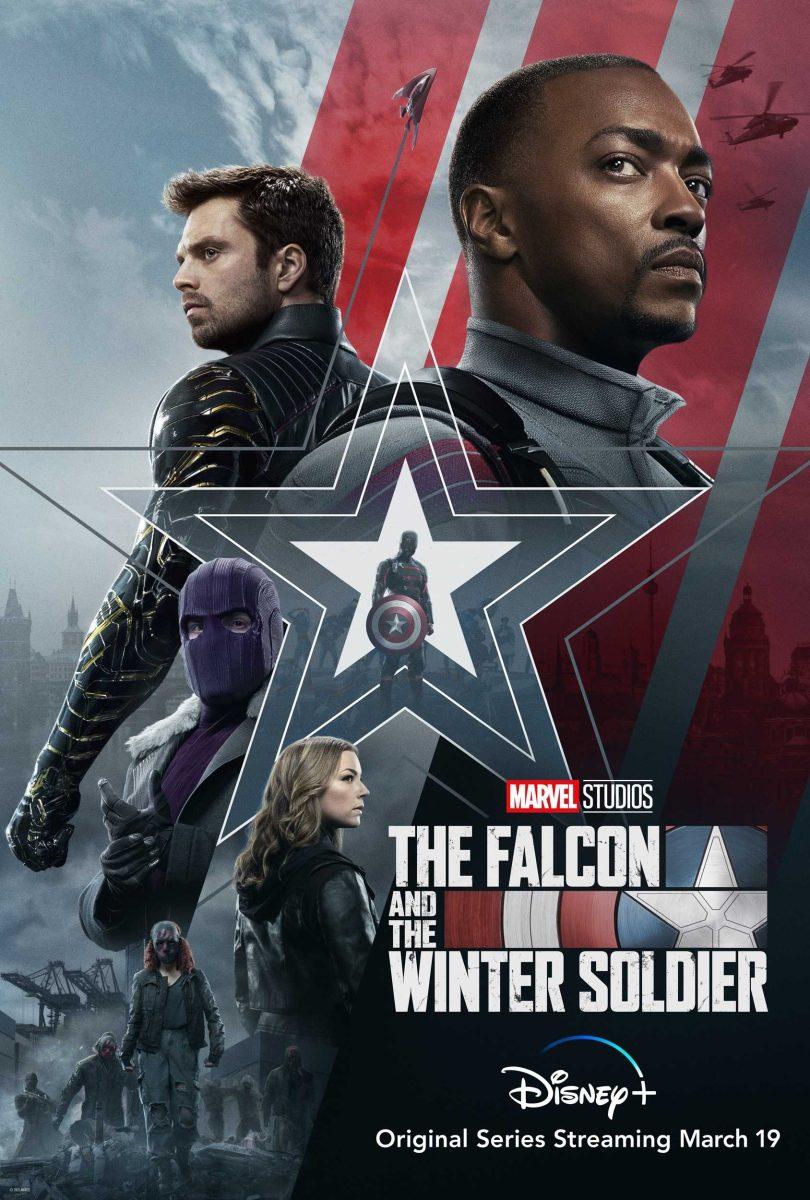Stars: 4/5
Known for his iconic vibranium shield, blue and red stripes and undying advocacy for patriotism and freedom, the character of Captain America represents all the qualities of a good man: A soldier willing to sacrifice his own life, an everyman brave enough to get up after getting knocked down and a patriot who truly believes in the values he is fighting for. Whether he is “just a kid from Brooklyn” or a fisherman’s son from Louisiana, these are the very ideals that compose the Star Spangled-Man.
In ”The Falcon and the Winter Soldier,” the new MCU miniseries on Disney+ maturely explores these themes. Picking up six months after Steve Rogers passed the mantle of Cap in ”Avengers: Endgame (2019),” Sam Wilson/The Falcon struggles to accept his newfound role as a Black man in America while Bucky Barnes/The Winter Soldier battles the pain of his brainwashed past. The duo is then roped up into an international adventure full fresh faces, old friends and foes when an anarchist, anti-patriotism group known as the Flag Smashers emerges.
As a Marvel property, the six-episode miniseries is fast-paced, funny and action-packed. Both Anthony Mackie and Sebastian Stan reprise their roles as the titular Avengers in the series which allows for their further character depth. Directed by Kari Skogland, it’s a fun and an adult steppingstone for future Marvel projects, but it unfortunately overextends itself by having too few episodes, too many plot threads, characters and a rushed finale.
There is just so much going on within each episode that I feel like the writers did not know how to properly structure the series. Marketed as a six-hour movie, Falcon and the Winter Soldier rarely ever feels like it has an assured direction outside of the former character assuming his role as Captain America (which, needless to say, is incredibly satisfying). It is a fun, but flawed watch that gets muddled by its own onslaught of plot lines and characters. However, the brightest spot of the series lies in the innate legacy of Captain America.
Akin to the political astuteness of ”Captain America: The Winter Soldier (2014),” the series examines race, discrimination and power through the lens of the iconic hero. Symbolically, Captain America represents the United States as a superpowered nation. With the super soldier serum or not, the mantle and shield are a coveted title that is whitewashed when blonde-haired and blue-eyed John Walker (a deliciously douchey Wyatt Russell) is inaugurated as Cap instead of Wilson. This unjust act perpetuates the MCU into some of its most topical territory yet by bringing the experience of Black men in America right to the foreground of the Marvel Cinematic Universe. Similar to how President Obama was viewed in office, the series explores how a Black man in power will always garner a second look, denial and discrimination. It explores this not only through Sam Wilson’s story, but also through Isaiah Washington, the first Black super soldier, who was unjustly marginalized by the American government as a science experiment unlike Steve Rogers who was heralded. By tackling these heavy political themes, the series stands out among the rest of the MCU as a mature reflection on systemic racism and iconography.
I just wish the rest of the series were as stellar and concise in its themes and social commentary.





